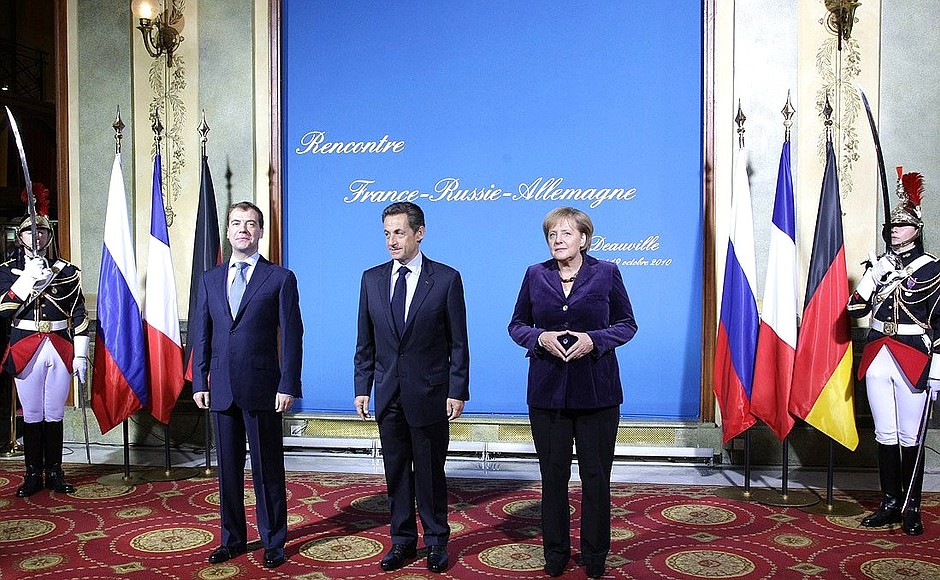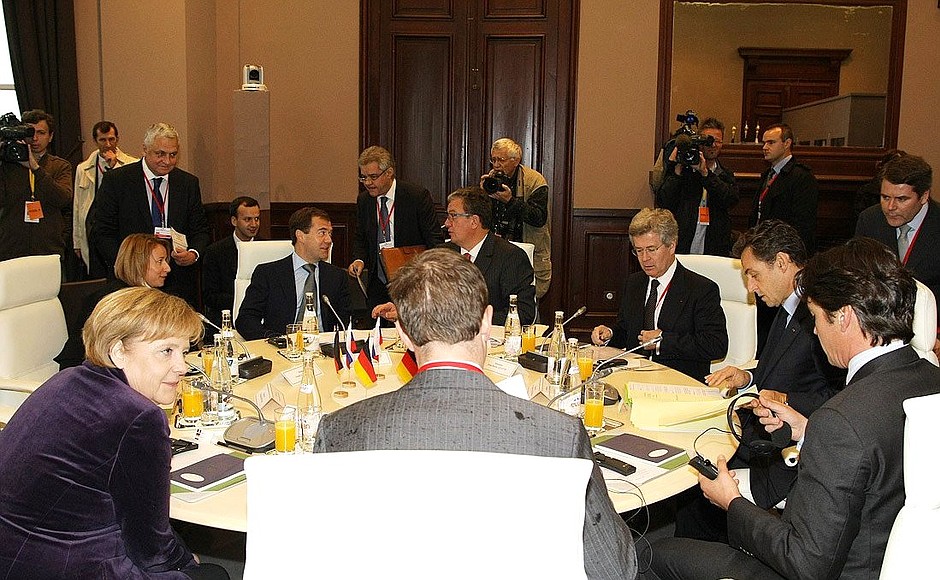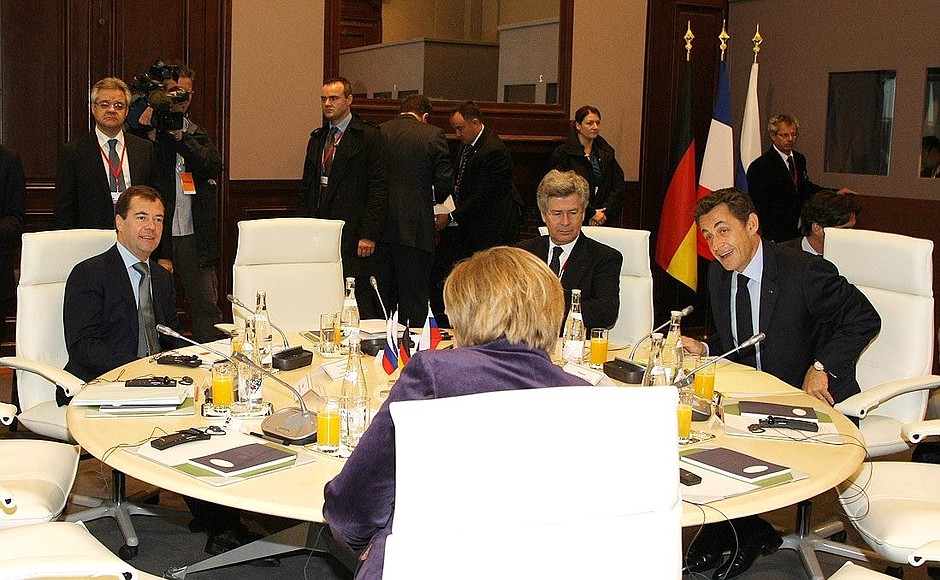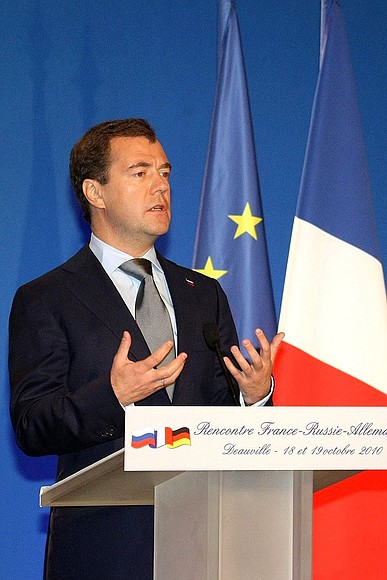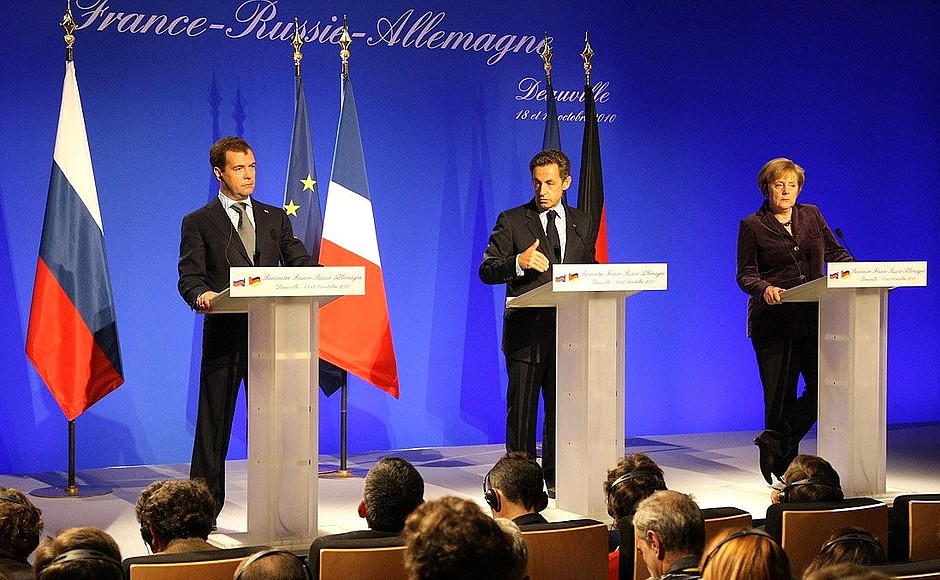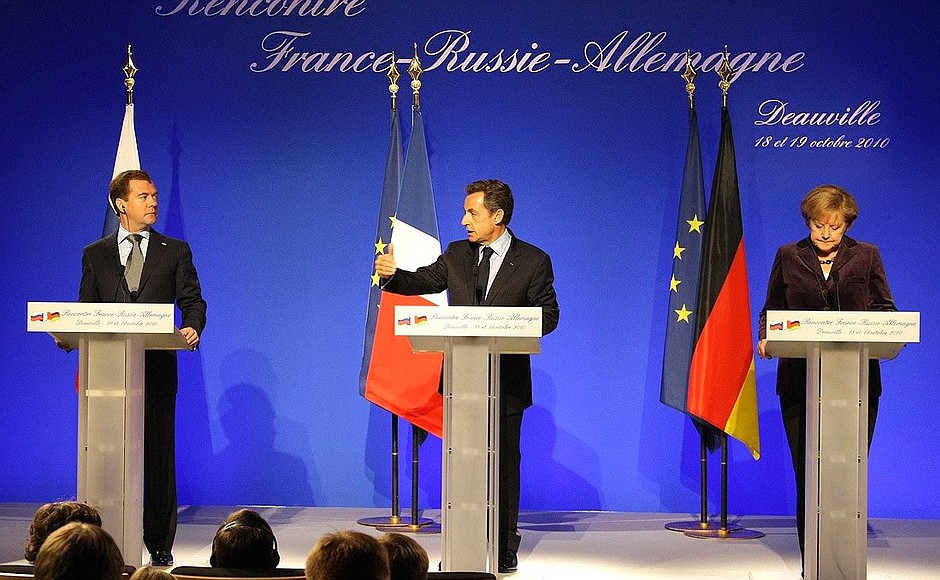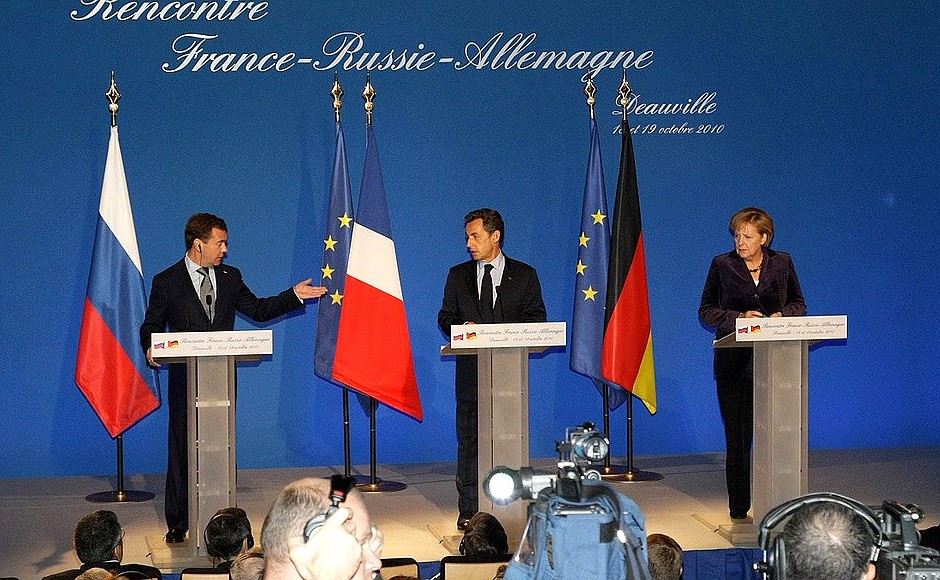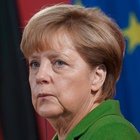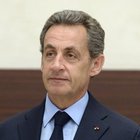During the trilateral talks, the three leaders exchanged views on the future European security architecture, focusing, in particular, on the European Security Treaty.
Russia’s relations with the European Union were also reviewed, including the Russian-German initiative to establish a Russia-EU Foreign and Security Policy Committee at the ministerial level, and Mr Sarkozy’s proposal to create a single economic and security space between Russia and the EU.
In the run-up to the December EU-Russia summit, the three leaders discussed the introduction of a visa-free regime. Dmitry Medvedev proposed to draft a roadmap for the abolition of visas between Russia and the European Union and to discuss its main points at the upcoming summit.
The parties touched on the issue of Russia’s cooperation with NATO. Dmitry Medvedev confirmed that he will take part in Russia-NATO Council to be held in November on the sidelines of the NATO summit in Lisbon.
The leaders of the three countries exchanged views on the Iranian nuclear programme. Dmitry Medvedev noted that the parties have agreed to adhere to the current policies, while at the same time encouraging Iran to cooperate on all issues.
Following the meeting, Dmitry Medvedev, Angela Merkel and Nicolas Sarkozy issued a joint statement, which highlights the main results of the talks.
At a joint news conference, Mr Medvedev said that the leaders of France, Germany and Russia should continue to hold trilateral summits on a regular basis. Ms Merkel and Mr Sarkozy expressed their support for the Russian President’s suggestion.
The leaders of Russia, France and Germany first decided to hold trilateral talks in 1998. Since then, meeting in this format were held in 2003, 2004 and 2005. The three countries’ leaders decided to return to the trilateral format this summer, during the G20 Summit in Canada.
